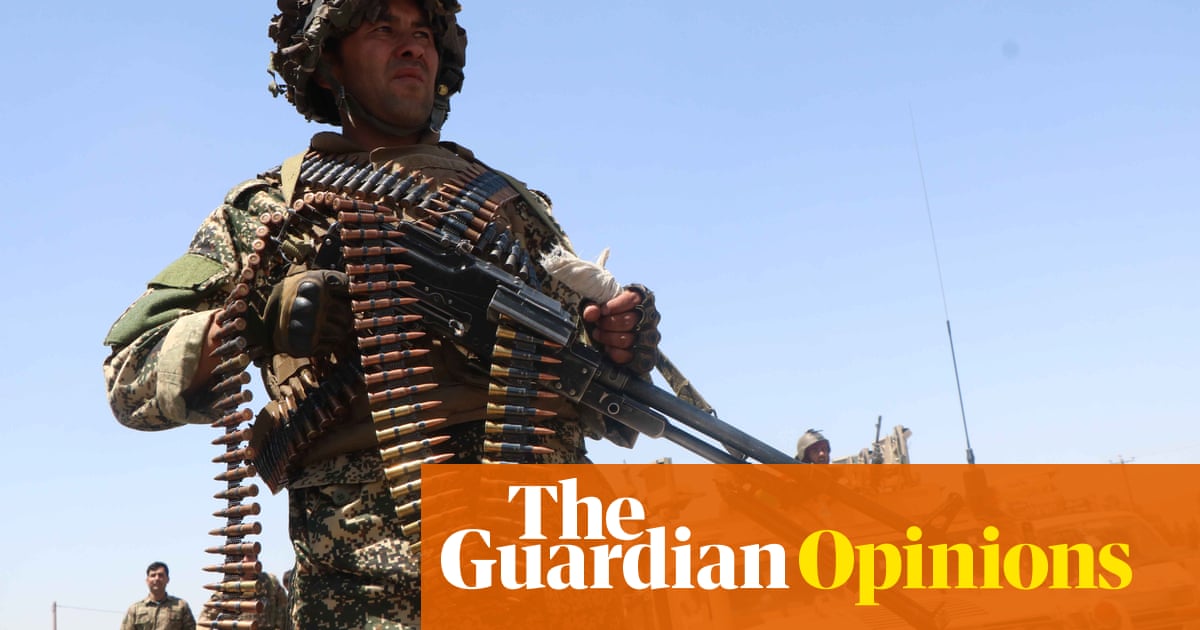
Show caption An Afghan security officer on patrol in patrol following fierce fighting in Herat city. Photograph: Jalil Rezayee/EPA Opinion The Guardian view on the Taliban’s advance: we still have a responsibility to Afghans Editorial The human cost is accumulating with the withdrawal of US and British troops Fri 6 Aug 2021 18.25 BST Share on Facebook
Share on Twitter
Share via Email
The fears held by many Afghans since Joe Biden announced the withdrawal of all US troops by September have been not only realised but surpassed. Many anticipated steady gains by the Taliban, but the speed and scale of their escalating advance has stunned observers. On Friday they captured the city of Zaranj in Nimruz, the first provincial capital they have taken. The prospect of full Taliban rule – almost two decades after they were toppled by the US-led invasion – or a devastating all-out civil war on the scale of the 1990s looms ever larger.
Record numbers of civilians have been killed and injured since 1 May, a United Nations report warned last week, and the toll could intensify as fighting spills from rural areas into towns and cities, which some hope can be better defended. Some had argued that a newer, less extreme Taliban might have evolved – placing faith in the statements of their representatives in Doha. But Human Rights Watch says that their forces are summarily executing detained soldiers, police and civilians suspected of ties to the Afghan government. In areas under Taliban control, girls are banned from school once more.
The US’s belief that it could transform Afghanistan was evidence of hubris, but its precipitate withdrawal is another failure with immense human cost. Its inability to determine the country’s future does not absolve it of all responsibility. Though Washington claims it’s “not ready to throw in the towel” on peace talks between the Taliban and the Afghan government, in truth the UK appears to be investing more effort in diplomacy, including by exerting pressure upon Pakistan. The US must step up. Some suggest that China, which hosted Taliban representatives in Beijing last month, might exert a moderating influence for practical reasons as it seeks regional stability and to cut off potential support for Uyghur militants.
Meanwhile, at least 30,000 Afghans are fleeing each week. Many are met with hostility. The most pressing moral case is to offer refuge to those at risk due to working with the west. There are grave concerns that Mr Biden’s withdrawal announcement left too little time to help them, and that the US will leave too many behind. Dozens of top British commanders have urged this government to rethink its shameful refusal to resettle Afghan interpreters who worked with UK forces and were dismissed for disciplinary reasons – without any due process and often on trivial grounds. It must do so; but it must not stop there.
On Friday, the foreign secretary, Dominic Raab, agreed to consider allowing journalists who worked for British media to relocate to the UK, at the urging of newspapers and broadcasters including the Guardian. Afghan journalists have been essential to public understanding of the war, and the Taliban have long targeted them; when the Pulitzer prize-winning photographer Danish Siddiqui was killed last month, his body was mutilated while in their custody. Though Mr Raab’s decision is welcome, the treatment of interpreters shows that the detail will be critical. Those who have worked for British charities and those at risk for promoting the values the UK said it would foster in Afghanistan – such as journalists for local media – also need protection. They must be given it.








